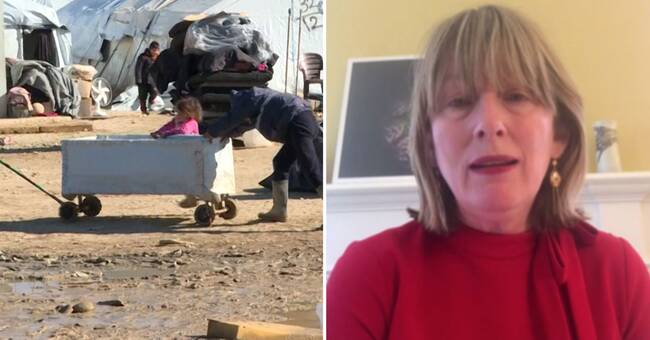Thousands of prisoners with links to the Islamist terrorist group IS are in concentration camps in northern Syria and Iraq.
But according to Fionnuala Ni Aolain, the vast majority of those held in the camps are innocent children with very limited access to medical care.
- Almost half are under six years old.
Malnutrition occurs and common childhood diseases in combination with lack of food create chronic medical conditions in children, she says.
- My mandate has been that the conditions in the camps constitute torture as well as inhuman and degrading treatment under international law, the worst conditions we can imagine for people.
Requires action by the home countries
Fionnuala Ni Aolain is very critical of the countries, such as Sweden, which, despite calls from the UN, have not yet taken home and prosecuted the citizens imprisoned in the camps, which she compares to the infamous US military prison Guantanamo.
- We can not have a legal black hole where people are held without some form of trial that has decided whether they have committed a crime.
Those who have committed serious crimes must be brought to justice, she says.
- Some countries are already doing this and doing well, such as Russia and the United States.
I find it strange that states that usually say they stand up for human and children's rights do not take responsibility.
Shouldn't they be held accountable on the spot?
- If people have committed serious crimes, war crimes, genocides or crimes against humanity, the victims deserve a legal process.
- But who do we think will carry out these trials?
I find it extremely problematic that European states are flirting with the idea that non-state actors should bring the citizens of these countries to justice, says Fionnuala Ni Aolain, referring to the local Kurdish self-government (AANES) which has control over the area.

